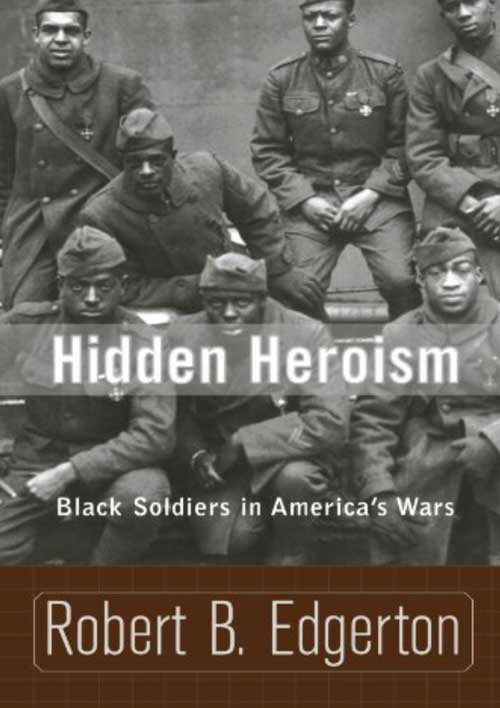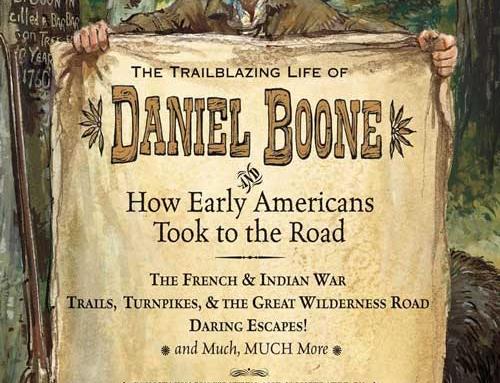February is Black History Month, and the Jesse Stuart Foundation recognizes the contributions of generations of African Americans with my review of “Hidden Heroism” by Robert Edgerton. This book investigates the history of African-American participation in American wars, from the French and Indian Wars to the present.
 Edgerton chronicles black heroism in every U.S. conflict since the Revolutionary War, recalling the little-known Buffalo Soldiers and the black cavalry that saved Theodore Roosevelt’s Rough Riders in Cuba and a pantheon of black heroes—obscure and famous—from Benjamin Banneker to Colin Powell. Edgerton also examines the blatant contradiction of having black soldiers fight for freedom abroad and then being subjected to racism when they returned home. Finally, he examines the current overrepresentation of blacks in America’s military forces today.
Edgerton chronicles black heroism in every U.S. conflict since the Revolutionary War, recalling the little-known Buffalo Soldiers and the black cavalry that saved Theodore Roosevelt’s Rough Riders in Cuba and a pantheon of black heroes—obscure and famous—from Benjamin Banneker to Colin Powell. Edgerton also examines the blatant contradiction of having black soldiers fight for freedom abroad and then being subjected to racism when they returned home. Finally, he examines the current overrepresentation of blacks in America’s military forces today.
Edgerton, the author of more than twenty books, argues that blacks in American society have long suffered from stereotypes that are implicit in the racism propagated from America’s earliest days—racism that often intensified as blacks slowly received freedom in American society. For instance, blacks served admirably in various wars, returned home after their service to short-term recognition, and soon found themselves even more seriously entrenched in a racist system because they were perceived as a threat to whites. This was true, Edgerton argues, until the Civil Rights movement and Vietnam, though the stereotypes have not been fully eradicated. In this book, Edgerton provides an accessible and well-informed tour through this little-known, but significant aspect of race in American history.
Edgerton documents the ways in which an honorable military status has historically been denied to African Americans. Already a pioneer in this field, Edgerton provides in “Hidden Heroism” a profound instance of the negative consequences of socially constructed stigma.
According to Brigadier General Remo Butler, “Hidden Heroism” is a great book. It tells the untold story of Black American service men who upheld a proud and illustrious tradition in the military and have always served with distinction.
This book is available at the JSF Bookstore at 4440 13th Street in Ashland. For more information, call 606-326-1667, or email jsf@jsfbooks.com.
Writers Workshop announces George Ella Lyon as Keynote Speaker
The Jesse Stuart Foundation Writers Workshop, scheduled for Friday and Saturday, June 21 & 22 proudly announces that George Ella Lyon, former Poet Laureate of Kentucky, will serve as Keynote Speaker. Other members of the instructional team include Hal Blythe, Stan Bumgardner, Victor Depta, Brenda Evans, Jim Gifford, Keith Kappes, Edwina Pendarvis, Christina St. Clair, and Charlie Sweet. If you would like to attend—or wish to be placed on a mailing list for more information—please contact me at gifford@jsfbooks.com. Please include your mailing address and telephone number.
By James M. Gifford
JSF CEO & Senior Editor
In 1978, Dr. Gifford was offered an editorial position on the Frederick Douglass Papers at Yale University.
February is Black History Month, and the Jesse Stuart Foundation recognizes the contributions of generations of African Americans with my review of “Hidden Heroism” by Robert Edgerton. This book investigates the history of African-American participation in American wars, from the French and Indian Wars to the present.
Edgerton chronicles black heroism in every U.S. conflict since the Revolutionary War, recalling the little-known Buffalo Soldiers and the black cavalry that saved Theodore Roosevelt’s Rough Riders in Cuba and a pantheon of black heroes—obscure and famous—from Benjamin Banneker to Colin Powell. Edgerton also examines the blatant contradiction of having black soldiers fight for freedom abroad and then being subjected to racism when they returned home. Finally, he examines the current overrepresentation of blacks in America’s military forces today.

Edgerton, the author of more than twenty books, argues that blacks in American society have long suffered from stereotypes that are implicit in the racism propagated from America’s earliest days—racism that often intensified as blacks slowly received freedom in American society. For instance, blacks served admirably in various wars, returned home after their service to short-term recognition, and soon found themselves even more seriously entrenched in a racist system because they were perceived as a threat to whites. This was true, Edgerton argues, until the Civil Rights movement and Vietnam, though the stereotypes have not been fully eradicated. In this book, Edgerton provides an accessible and well-informed tour through this little-known, but significant aspect of race in American history.
Edgerton documents the ways in which an honorable military status has historically been denied to African Americans. Already a pioneer in this field, Edgerton provides in “Hidden Heroism” a profound instance of the negative consequences of socially constructed stigma.
According to Brigadier General Remo Butler, “Hidden Heroism” is a great book. It tells the untold story of Black American service men who upheld a proud and illustrious tradition in the military and have always served with distinction.
This book is available at the JSF Bookstore at 4440 13th Street in Ashland. For more information, call 606-326-1667, or email jsf@jsfbooks.com.
Writers Workshop announces George Ella Lyon as Keynote Speaker
The Jesse Stuart Foundation Writers Workshop, scheduled for Friday and Saturday, June 21 & 22 proudly announces that George Ella Lyon, former Poet Laureate of Kentucky, will serve as Keynote Speaker. Other members of the instructional team include Hal Blythe, Stan Bumgardner, Victor Depta, Brenda Evans, Jim Gifford, Keith Kappes, Edwina Pendarvis, Christina St. Clair, and Charlie Sweet. If you would like to attend—or wish to be placed on a mailing list for more information—please contact me at gifford@jsfbooks.com. Please include your mailing address and telephone number.
By James M. Gifford
JSF CEO & Senior Editor
In 1978, Dr. Gifford was offered an editorial position on the Frederick Douglass Papers at Yale University.




